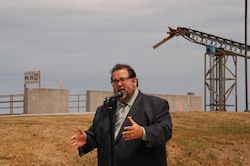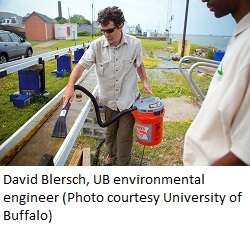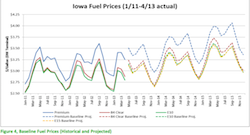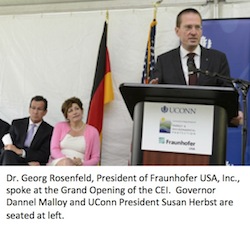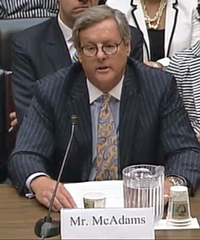Sapphire Energy has paid off the entire loan guarantee from the U.S. Department of Agriculture (USDA). In December 2009, the company was awarded $54.5 million through the Biorefinery Assistance Program, administered by the USDA Rural Development-Cooperative Service (and one of the energy programs in jeopardy in the current House version of its farm bill). The funds were to be used to build a fully integrated, algae-to-crude oil commercial demonstration facility in Columbus, New Mexico In partnership with the USDA and the U.S. Department of Energy (DOE).
The result known as the Green Crude Farm is completed and was built on budget. Today, the Farm is operational and producing renewable crude oil on a continuous basis. As a result of the USDA’s loan guarantee and DOE’s support, Sapphire Energy is now producing renewable crude oil, and is in the process of scaling up the technology.
“The investments being made in low-carbon biofuel production are paying off and moving technologies forward, which will produce savings at the pump for consumers, and spur sustainable, new-wealth creation here in the United States, and make our land more productive,” said Doug O’Brien, Acting Under Secretary for Rural Development.
The operational crude oil farm has led to additional investment in the company and commercial partnerships. The company repaid the remaining loan balance in full after 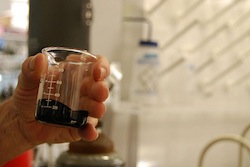 receiving additional equity from private investors, making the loan no longer necessary to complete the next, planned phase of development. According to Sapphire Energy, the early repayment of this loan and on-target development roadmap for Sapphire Energy’s algae crude oil technologies further solidifies the USDA’s role in catalyzing new energy technologies in rural communities, increasing domestic energy production, and creating new jobs. The USDA’s investment has advanced the use of algae as a feedstock to produce crude oil and as a viable new crop to produce homegrown energy while creating valuable rural economies.
receiving additional equity from private investors, making the loan no longer necessary to complete the next, planned phase of development. According to Sapphire Energy, the early repayment of this loan and on-target development roadmap for Sapphire Energy’s algae crude oil technologies further solidifies the USDA’s role in catalyzing new energy technologies in rural communities, increasing domestic energy production, and creating new jobs. The USDA’s investment has advanced the use of algae as a feedstock to produce crude oil and as a viable new crop to produce homegrown energy while creating valuable rural economies.
“Sapphire Energy is very grateful to the USDA for supporting algae crude oil as an alternative source of energy as well as our vision to make this industry a reality,” said Cynthia ‘CJ’ Warner, CEO and chairman of Sapphire Energy. “With their backing, we did exactly what we set out to do. We grew our company, advanced our algae technologies, and built, on time and on budget, the first, fully operational, commercial demonstration, algae-to-energy facility that delivers a proven process for producing refinery-ready Green Crude oil.”
“We could not have built this first of a kind facility without the support of the USDA. Moving forward, our focus is on commercializing our technology and expanding operations to bring crude oil production to commercial demonstration scale as planned,” she added.


